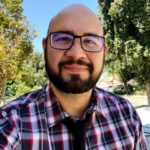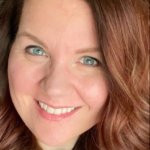Session Description
In the summer of 2021, the California State University, San Bernardino (CSUSB) Instructional Design team faced two big questions: “How can we help faculty prepare for a Learning Management System transition from Blackboard to Canvas?” and “How can we equip faculty for post-COVID-19 flexible teaching modalities?” To address these questions, three training courses were developed:
- The CSUSB Canvas Quick Start Guide, a <60 minute Articulate Rise course designed to quickly introduce instructors to both the basics of Canvas and CSUSB’s Canvas resources, and
- Essentials of Teaching with Canvas, a 6-8 hour self-paced course that combines information on best practices of teaching and the primary elements of Canvas. The Essentials course also includes optional hands-on activities designed to help faculty become more comfortable with Canvas. Those who successfully complete the Essentials course earn a badge.
- Best Practices in Cosynchronous Teaching is a 2-hour, self-paced course that introduces the concept of cosynchronous teaching as well as how to use the equipment in CSUSB’s Next Generation Smart Classrooms (NGSC). Preliminary data shows that both courses have, overall, been positively received. Suggestions for improvement have been implemented where feasible.
We will discuss our processes, successes, and lessons learned in meeting these design problems in a compressed time frame.
Presenter(s)
 Amanda (Mandy) Taylor
Amanda (Mandy) Taylor
California State University
Mandy Taylor is an Instructional Designer at California State University, San Bernardino and a former lecturer for CSUSB’s English Department. She has a BA in English (2004) and an MA in English Composition and Literature (2009). She will receive her M.S. in Instructional Design and Technology from CSU Fullerton in May 2022. She will begin Boise State University's Ed.D in Educational Technology program in August 2022.
Mandy is an active scholar in English studies and instructional design. Mandy has published essays and presented at conferences on a variety of topics in both fields. In English studies, her work focuses on popular culture. In instructional design, her current topics of interest include workplace mentorship, onboarding training design, educational technology, gamification, and instructor readiness for online teaching.
 Mauricio Cadavid
Mauricio Cadavid
California State University
Dr. Mauricio Cadavid is the Sr. Instructional Designer with Academic Technologies and Innovation at CSUSB. Dr. Cadavid has a BA in Psychology (2004), MA in Education, in Reading/Language Arts (2008), and an EdD in Educational Leadership and Curriculum (2017).
This year he completed 15 years as an Instructional Designer with Academic Technologies and Innovation, during which time he has been the recipient of the Distinguished Service Award (2007) and the President's Service Award (2017) as well as being recognized as an expert in the field of online learning. Currently, Dr. Cadavid is actively engaged in the assessment of quality design and instruction through the Quality of Learning and Teaching program (QLT) as well as serving as an internal evaluator for Quality Matters (QM). He has also written educational scholarship and presented at multiple conferences both nationally and internationally. His topics of interest include Adult Learning, Project-Based Learning, Educational Technology, Information Technology, and Reading Education.
Aside from being an instructional designer, he has taught courses for Undergraduate Studies, College of Extended and Global Education, The College of Education Master's Program, and currently for the Information and Decision Sciences department.

 José Luis Jiménez
José Luis Jiménez Susan Cathcart
Susan Cathcart Connie Harrison
Connie Harrison Laurie Hansen
Laurie Hansen Liz Fitzgerald
Liz Fitzgerald Joni Boone
Joni Boone Judy Kakazu
Judy Kakazu Peter Leong
Peter Leong Jennifer Teague
Jennifer Teague Pam DeLotell
Pam DeLotell Karen Krier
Karen Krier
 Marsha Morgenstern
Marsha Morgenstern Kimberly Long
Kimberly Long Jeffrey Bailie
Jeffrey Bailie